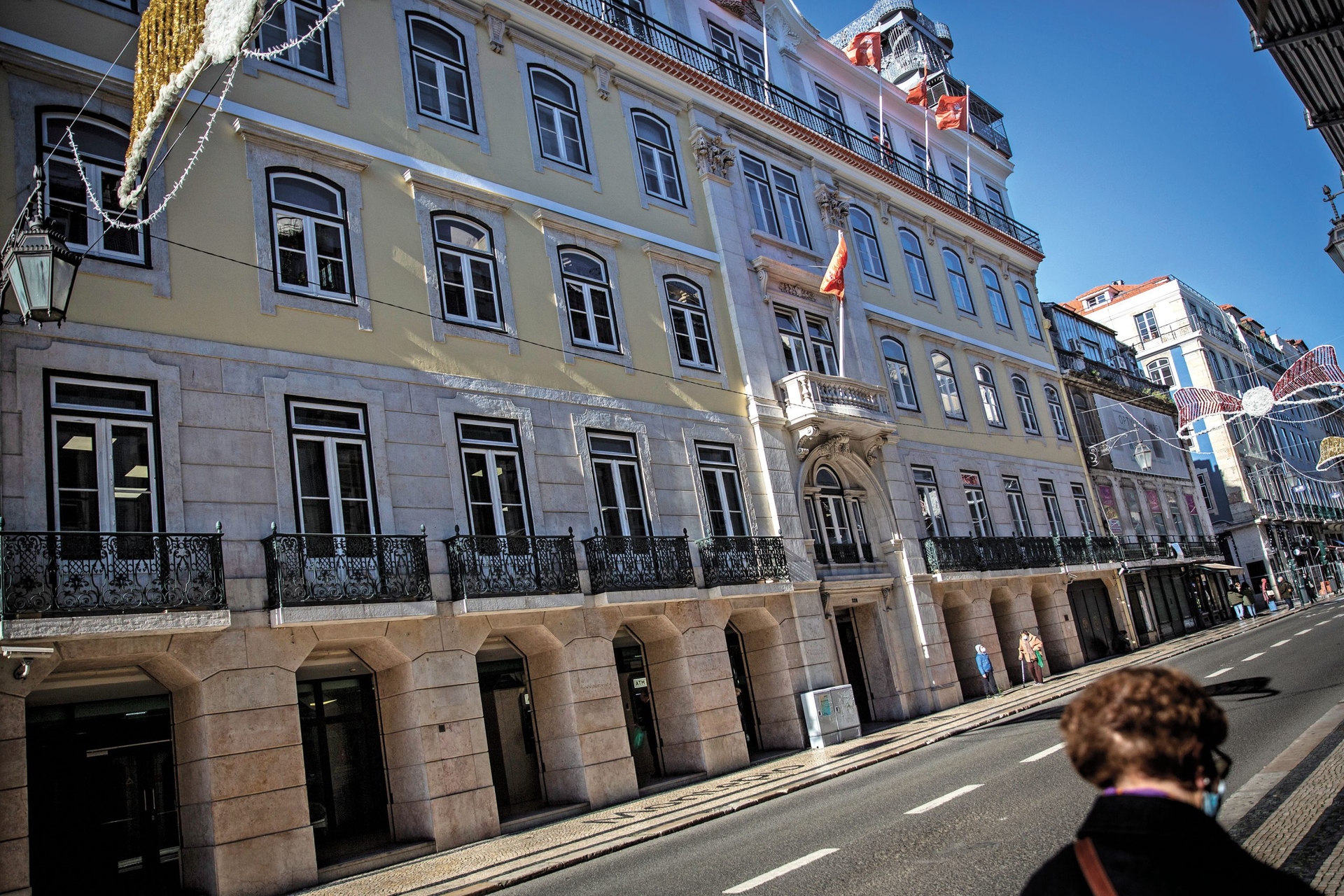Mutualista Montepio. Alternative list advances

Unlike the leadership race of the Montepio Geral Mutualist Association (AMMG), which owns Montepio Bank, the elections for the Assembly of Representatives will feature an opposition list, as Nascer do SOL had previously revealed. Tiago Mota Saraiva, a 49-year-old architect, will be the face of this alternative list, whose candidacy deadline ended on the 15th. The elections will take place on December 19th, and approximately 600,000 members will be called to vote.
To our newspaper, the candidate hints at "a very diverse list that is enjoying very broad and politically comprehensive support, and is based on a logic of trying to effectively monitor the Mutualist Association."
Francisco Calhandra, a former director at Montepio, and Marta Silva, who comes from the Assembly of Representatives, which is now outgoing, are other names joining this alternative list, which also has the support of António Godinho, who ran for List C eight years ago—against Fernando Ribeiro Mendes and António Tomás Correia—and came close to winning the election. The same is true of Pedro Corte Real, who has also entered the race for the leadership of Mutualista.
One of the priorities of this list running for the Assembly of Representatives—which has 30 members elected using the d'Hondt method, and where fundamental documents concerning the life of the Montepio mutual society are debated and voted on—is the issue of remuneration. "We have been advocating and will continue to advocate that the remuneration of the members of the board of directors and the bodies of the Association be equal to that of other social economy organizations. Another fundamental issue is to end, as far as possible and reasonable within the Association and its commitment frameworks, the golden pensions, privileges that have been granted to some members over the years," Mota Saraiva told Nascer do SOL.
Another objective is to rethink the issue of mutualism. "It's essential to consider what mutualism is so that it can be reflected in the statutory review we want to carry out," he argues, arguing that mutualism should be linked to the idea that savings among many people can help the lives and realities of its members. "That's why mutualism was created. It wasn't to replicate banking practices or the conventional banking business," he emphasizes.
This list also focuses on strengthening and promoting housing, with a view to finding new ways to provide housing for members. "We will have support from several important figures in the country's housing sector, such as Helena Roseta. This housing issue is crucial for us. We need to think about how the association can do more for its members with specific programs, with various lines of action that can be developed," the list leader told our newspaper.
It should be noted that, as Nascer do SOL has already announced, Virgílio Lima also intends to invest 20 million per year in the acquisition of properties for members who cannot afford to purchase a property or who lack the necessary capital for a down payment and rent. At the time, Lima acknowledged that this was "a method through which it proposes to meet the housing needs of its community of members," arguing that this is one of the organization's proposals to partially address the housing crisis.
A solution that doesn't convince Tiago Mota Saraiva, who considers it a "palliative measure," arguing that a response must be found for the country, not just focusing on large cities.
Master Assembly of Representatives
The leader of this alternative list is optimistic about the results, revealing that the goal is to elect more members than the opposition list. And he's also criticizing what happened in this last term. "In the last elections, Virgílio Lima's list managed to appoint 15 members to the Assembly of Representatives, and the opposition, which comprised the remaining 30, dispersed. Some were absent, others institutionalized voting with the board of directors, and we were often left voting alone, for example, on salary issues," he confesses.
On the other hand, he believes that the next four years will serve as an opportunity for this team to rethink the entire structure and later present a comprehensive project for the entire Mutualist Association. "Right now, we're focusing on building an alternative program," he emphasizes.
This issue gains even greater prominence as the government revises the Mutualist Code. The Ministry of Labor, Solidarity, and Social Security announced that "the revision of the Mutualist Associations Code is underway, followed by the development of a proposed sector-specific supervisory regime." The Insurance and Pension Funds Supervisory Authority (ASF) will be responsible for monitoring the associations covered by the transitional regime.
To our newspaper, an official source from Mutualista clarifies that the "changes to the statutes were introduced in two phases: a first set of changes approved at the General Meeting on 11/04/2019 and a second set of changes, approved at the General Meeting on 05/17/2021", revealing that "the convergence plan is dependent on legislative changes provided for in the CAM and which have not yet been defined and without them it is not possible to frame/approve the convergence plan".
Regarding the relationship with the ASF, he simply says that "it is, and has always been, very constructive and very courteous, within the framework of the rigor required and appropriate for a supervisor."
An official source from the ASF clarified to Nascer do SOL that "it is not the Supervisor of mutualist associations, as they are subject to the supervision of the Ministry of Labor, Solidarity and Social Security." They also noted that, in 2018, a specific regime was created for larger mutualist associations, namely Montepio Geral – Associação Mutualista (MGAM), with a 12-year transitional period established, "precisely to allow these institutions to gradually adapt to the new regulatory framework." During this period, "the ASF does not exercise financial oversight functions over these mutualist associations, but it does have the power to verify compliance with the convergence plan to be submitted by these entities. However, in 2021, in its initial assessment of the plan submitted by the MGAM, the ASF concluded that it did not comply with the legally applicable requirements, and this situation was communicated to the Directorate-General for Social Security (DGSS)."
However, it clarifies that the ASF is only responsible for registering the people who manage or supervise these entities, including verifying suitability, qualification and capacity requirements, which has been carried out.
Headaches
Sources interviewed by Nascer do SOL admit that the next four-year term faces a series of challenges, and not even the results achieved in 2024 provide any peace of mind for a number of members. Mutualista Montepio increased its profits to €210 million in 2024, representing an 87.5% increase compared to the previous year. It is true that the association managed to maintain the trend it has seen since 2021, when it returned to positive results after the losses recorded in the previous two years, which were penalized by the banking institution's accounts.
One of the headaches concerns the composition of the association's balance sheet, which has €943 million in unpaid tax assets—a figure that has been increasing since 2020, when it totaled €867 million. The situation has been prompting warnings from the association's own auditor, PwC, which warns that the bank may be overvalued and, as such, the Mutualist Association may not recover its investment, since its recovery must be "assessed based on the achievement of taxable income, which should be projected excluding the taxable components arising from deductible temporary differences."
MGAM closed 2024 with 610,181 members, a figure that compares with 604,799 at the end of 2023, representing an increase of 5,382 members (0.9%), still far from the 632,931 that existed in 2015, before the separation of the brands (bank versus Mutualista).
Of this total, more than 75,000 are over 70 years old, almost 10,000 are over 85 years old and more than 3,300 are over 90 years old. It is true that the vast majority are centered in the age groups of 41/65 years old (283,436) and 26/40 years old (107,587).
Jornal Sol





